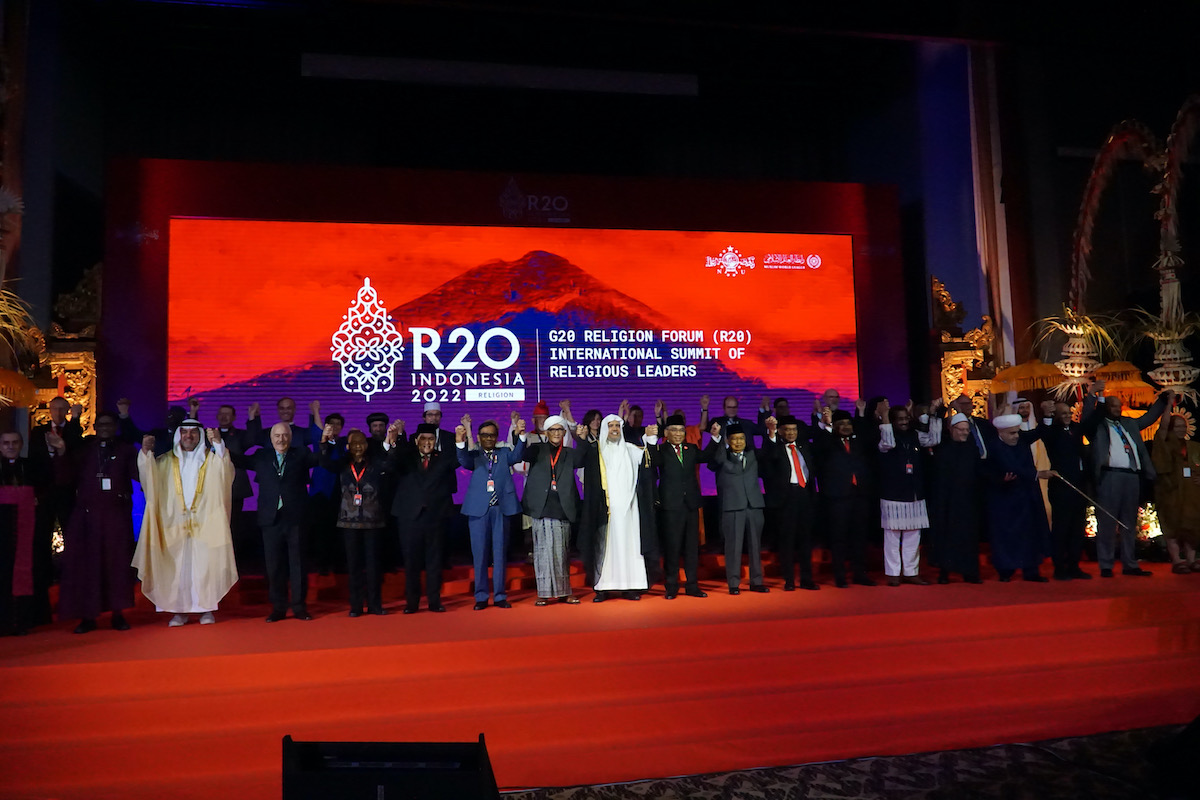
Two weeks before global heads of state met in Bali for the G20 summit, another meeting took place, on November 2–3, between religious leaders from around the world. The G20 religion forum, or R20, convened hundreds of leaders and scholars from Hindu, Buddhist, Shinto, Jewish, Muslim, and Christian communities to discuss how religion can function as a source of global solutions rather than problems in the 21st century.
R20 exhibited an encouraging new alliance that could help to bridge ideological divisions between streams of Islam. The world’s largest Muslim organization, Indonesia-based Nahdlatul Ulama—which openly endorses pluralism and religious tolerance—convened R20 in partnership with Saudi Arabia’s Muslim World League.
In a plenary session titled Historical Grievances, Truth-telling, Reconciliation, and Forgiveness, the Bishop of the Chaldean Catholic Church in Iraq, Bashar Matti Warda said,
“If we are to proceed beyond the surface talk and shallow agreement typical of most interfaith gatherings, and truly be worthy to contribute to global discussions and decision-making, we must first confront the violent sectarianism amongst us.”
Dr. Kyle Wisdom, who attended as a representative from the IIRF was especially encouraged to hear plenary speeches which reflected concern for the persecution of religious minorities. This is a prominent concern of IIRF, whose mission is to promote religious freedom for all faiths from an academic perspective. For those interested, summaries of the plenary sessions are beginning to be published on the website from one of the hosting organizations: plenary 1, plenary 2, and plenary 3.